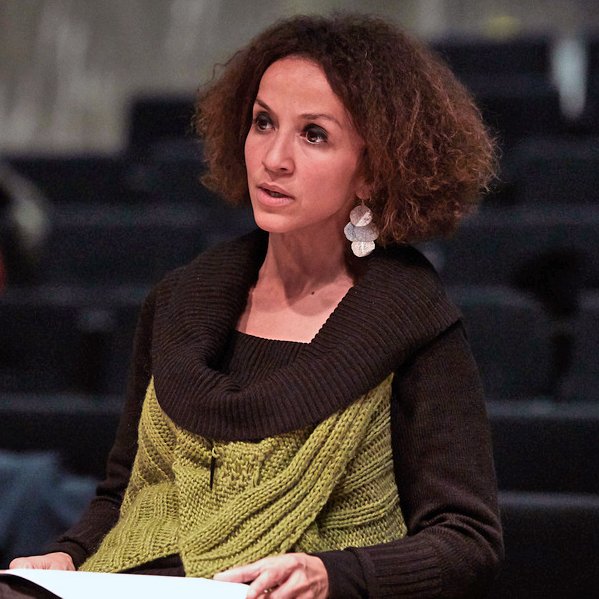Cornell’s Failure to Condemn Campus Break-In Remains of Concern
/PHOTO COURTESY OF SAMIA HENNI
The Cornell University administration’s silence in the wake of a 2022 break-in at the office of professor Samia Henni has prompted questions and concerns about Cornell’s commitment to the safety and academic freedom of faculty who have spoken out in support of Palestinian rights.
In September 2022, Cornell University professor Samia Henni found her office in disarray, with sensitive materials missing. Several of her books and folders were found scattered across the floor and several of her documents and office items were taken. Henni, who is an outspoken supporter of Palestinian freedom, suspects that she was targeted because of her political views given past harassment and pressure around her support for Palestinian rights.
The University did not make the attack known to the broader Cornell community—something it regularly does when such incidents take place on campus—nor did it condemn it. Cornell police conducted an investigation, but closed it, claiming that there had been no break-in, despite evidence to the contrary, and ignored Henni’s concerns for her safety.
As of May 2023, supporters—including over a thousand academics from around the world—continue to demand that the university apologize to Henni and properly investigate the incident.
Cornell Administration Fails to Protect Professor Henni
It is routine for the University to notify the campus community and publicly condemn incidents like the one that occurred here. Instead, Cornell’s first communication occurred on December 15 to the College of Architecture, Art, and Planning (“AAP”), about three months after the incident. In an email to all students and departmental faculty and staff of AAP, the university announced that the police investigation was closed, after having concluded that the reason Henni’s books, folders, and items were found on the desk and floor was because the shelf in her office was “improperly installed.” This improbable explanation failed to account for the missing materials and the fact that the shelf was still in place.
It is concerning that the Cornell administration and university police neglected to provide full disclosure of the police report and evidentiary material to Henni despite her multiple requests for it, as well as failed to publicly condemn the act, in line with its usual protocols. It wasn’t until after Henni obtained independent legal counsel and made multiple requests did Cornell police release a copy of the police report to her. Henni also made requests for the university to conduct an independent investigation, but her requests were denied.
These responses fail to take Henni’s safety concerns seriously, despite the fact that she is a faculty member of Cornell who has been targeted by ongoing harassment due to her public speech in support of Palestine.
Henni is an assistant professor in the College of AAP at Cornell University whose work focuses on the interface of colonization, displacement, and war with the built environment. Recognizing that architecture and urban planning are tools that the Israeli government has employed to oppress Palestinians, Henni has frequently spoken out on the issue of Palestinian rights in both a personal and professional capacity. “As architects and planners, it is our moral and ethical duty to acknowledge that the tools of our profession have been co-opted to violate the legal rights of the Palestinian people,” Henni explained in a petition she helped draft in June 2021. As a result of her outspoken solidarity with Palestinians, Henni has been subjected to abuse and threats via social media and email.
Communities Mobilize to Express Support for Professor Henni and Demand Action from Cornell
Architects and academics have called on the university to take concrete action to protect Henni and other faculty in the wake of the break-in. An open letter, with over a thousand signatories including faculty from across the country and around the world, demands that Cornell release “a full disclosure of the police report and evidentiary material to Dr. Henni,” offer a “public condemnation of the attack by Cornell University,” and take action to install “measures to guarantee academic freedom and ensure the safety of threatened faculty, especially women of colour.”
Many others have also called on Cornell University to take action, including Cornell’s Chapter of the American Association of University Professors in their statement expressing their concerns, and USACBI in their letter expressing full support for Henni and calling on Cornell to publicly condemn harassment and abuse. The Middle East Studies Association has also called on Cornell to reopen their investigation.
Cornell Must Take Action
“Cornell also has a role and responsibility here,” said Amal Thabateh, Palestine Legal’s Michael Ratner Justice Fellow. “The university must publicly condemn the incident to the broader Cornell community, reopen the investigation into the break-in or conduct an independent investigation, and take steps to guarantee Henni’s academic freedom and safety on campus.”
As with many campuses across the country, faculty and students who speak up about the injustices against Palestinians, are routinely targeted in smear campaigns, falsely accused of antisemitism, defamed, threatened, and face official punishment or dismissal. University leaders and administrators are routinely pressured by pro-Israel groups to take a stance against faculty and students who speak out in support of Palestinian freedom. This is exactly what is happening in Henni’s case.


